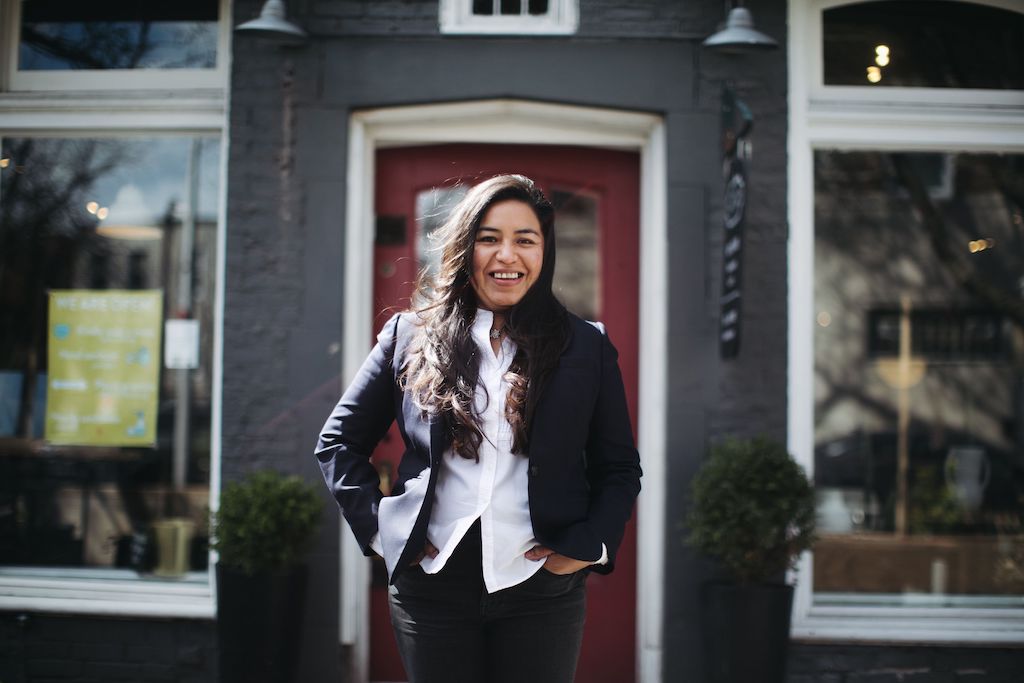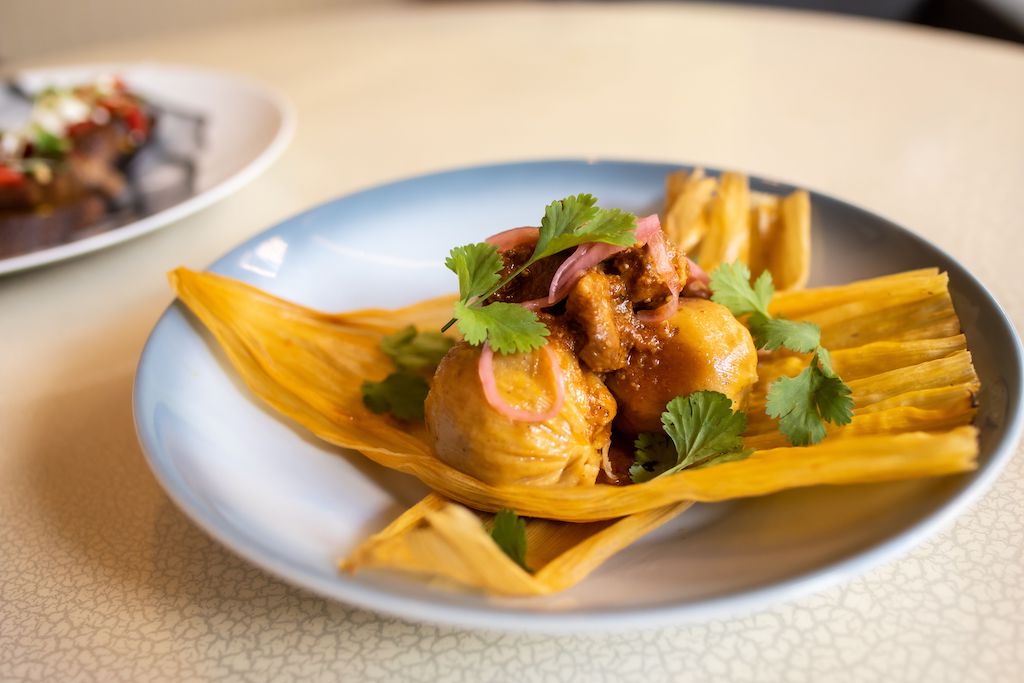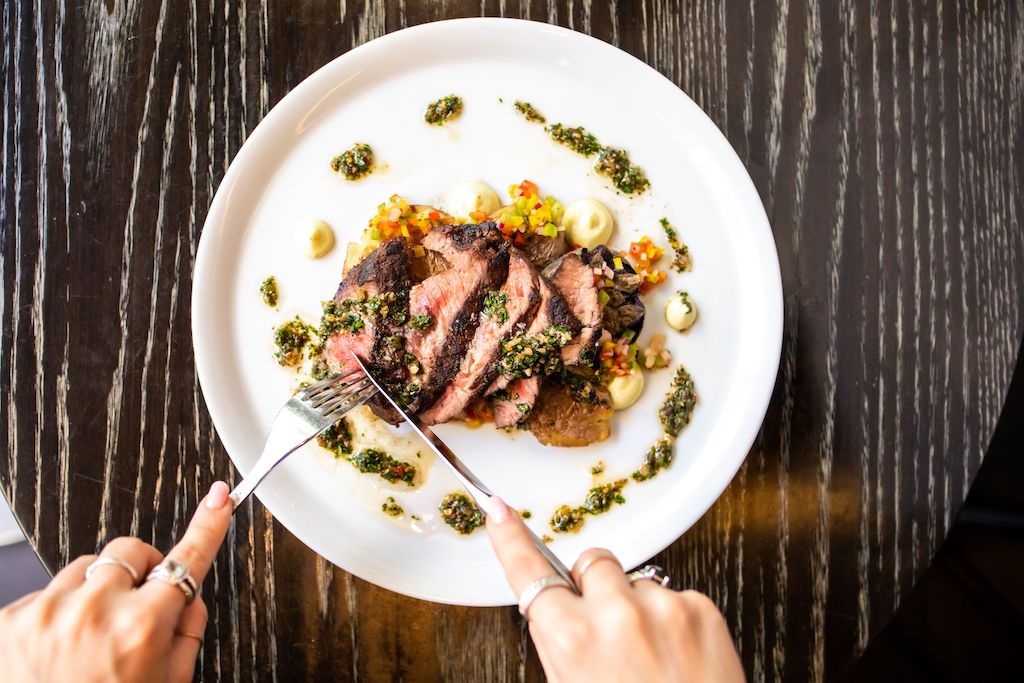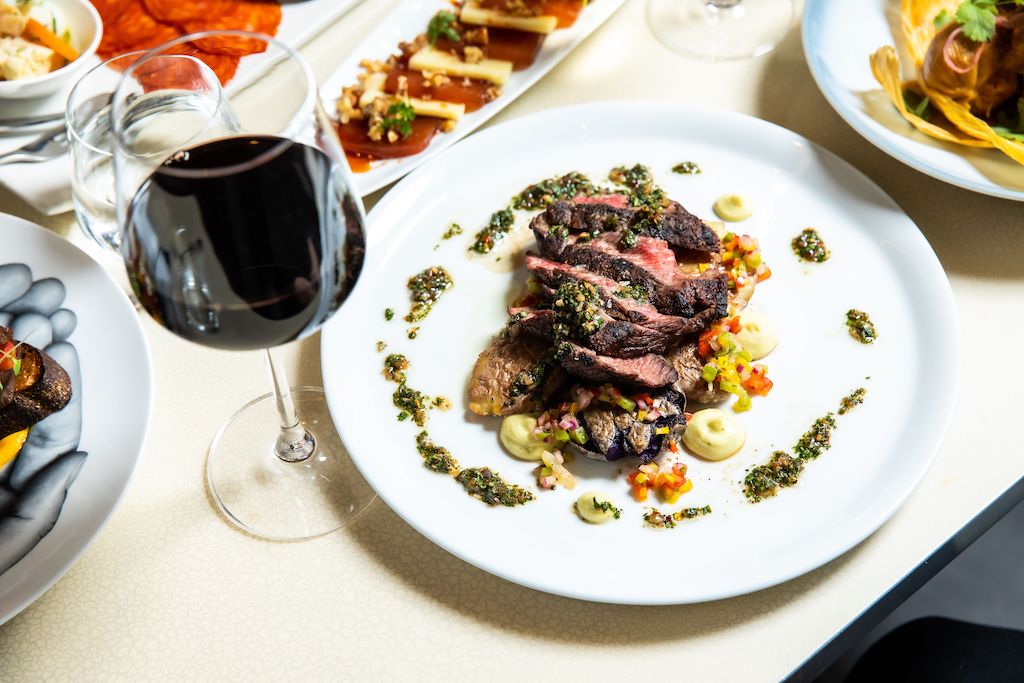
Chef Jose Garces’ Volver Chef Residency Program Continues with Chef Jezabel Careaga.
From Palpalá in the Argentinian province of Jujuy to Miami to Center City’s Fitler Square and, finally, settling in West Philly, Chef Jezabel Careaga has been making things happen in a major way, ever since she got here in 2009 and opened Jezabel’s. For her North Argentina-based cuisine. For her lifestyle and furnishings designs sold through her Atelier. For her educational classes. Starting last week, Chef Jezabel Careaga brought her talents and tastes to Jose Garces’ mash-up Chef in Residency Program menu program at the Kimmel Cultural Campus’ Volver.

Dining exclusively from her side of the Volver menu, what I found in every bite of Chef Jezabel Careaga’s Berenjena (marinated eggplant toast with roasted red pepper and saffron aioli), Empanadas (of braised beef and leek with chimichurri and salsa criolla), corn Tamales Saltenos with spicy paprika sofrito and pork, and of course her Locro (an Andean pork stew of winter squash, chorizo, hominy, Peruvian lima beans) was tradition in a twist.
No matter what familiar flavor you took in – certainly empanadas and tamales are readily available in South Philadelphia – your palate was ceased and shifted into another flavorful sensation. In particular, her Locro stew spoke emotionally of times past in Palpata, as well as where she dwells now in West Philly for the last decade.
As soon as the meal was through, I had to speak to Careaga.
A.D. Amorosi: From Jujuy to Cordoba to Miami to Fitler Square to West Philly to Volver… What is the single thought, the through line as to how and why you make food and curate meals?
Jezabel Careaga: Journey and Evolution. I think that growing up around food, going to school, working in corporate situations, and finding my way back to food represents the evolution of my connection with the things I love that being food, how it brings us together, allows to connect with earth and with each other.
A.D. Amorosi: How would you say that you keep the traditions of your family in Argentina while modernizing them, altering them since your arrival in Philadelphia in 2009?
Jezabel Careaga: I keep these traditions alive by keeping things simple. by taking time to celebrate flavors and ingredients, and relaying that to every plate of food I craft.

A.D. Amorosi: Please tell me about the focus of Northwestern Argentine with Spanish influences, and how did that come through, most recently, in the Volver menu?
Jezabel Careaga: I was born and raised in NW Argentina, the flavors are tastier, a little spicy and bolder. Those flavors are recognized all over Argentina and I like to highlight them here and everywhere I go. You can find those flavors in the empanadas, Locro and Estofado dishes at Volver. I was thrilled to be able to elevate these dishes in this new setting.
A.D. Amorosi: My friend and I tried everything on your side of the menu. All of it is amazing. Two things in particular, though, truly stood out. The Tamales Saltenos (Corn Tamales, Spicy Paprika Sofrito, Pork, Pickled Red Onion) and the Locro (Andean Pork Stew, Winter Squash, Chorizo, Hominy, Paprika Oil, Scallion, Peruvian Lima Beans). What can you say about those two menu items’ creation? How you played into family heritage and created a-new?
Jezabel Careaga: Locro is a staple in Argentine culture, It’s the one dish we look forward to our holiday get-togethers between May and August. It starts with getting together and cooking it for hours and then enjoying it around the table with your friends and family. Tamales, on the other hand, are not commonly made at home, you usually order them from a lady that has been making them for years and they are the best unless you get them at Volver of course.

A.D. Amorosi: How do you think the Volver chef collab changed your perception of your work and collaboration in general and how will the collab affect what you do next?
Jezabel Careaga: I think this experience is adding to my evolution as a maker and artist. I definitely appreciate the fact that we are doing it for an extended period and that makes it impactful and creates room to reach a wider audience. What would I learn from this? Not sure yet, but I can report back on this.
Images: Eddy Marenco

About Post Author
Discover more from dosage MAGAZINE
Subscribe to get the latest posts sent to your email.

